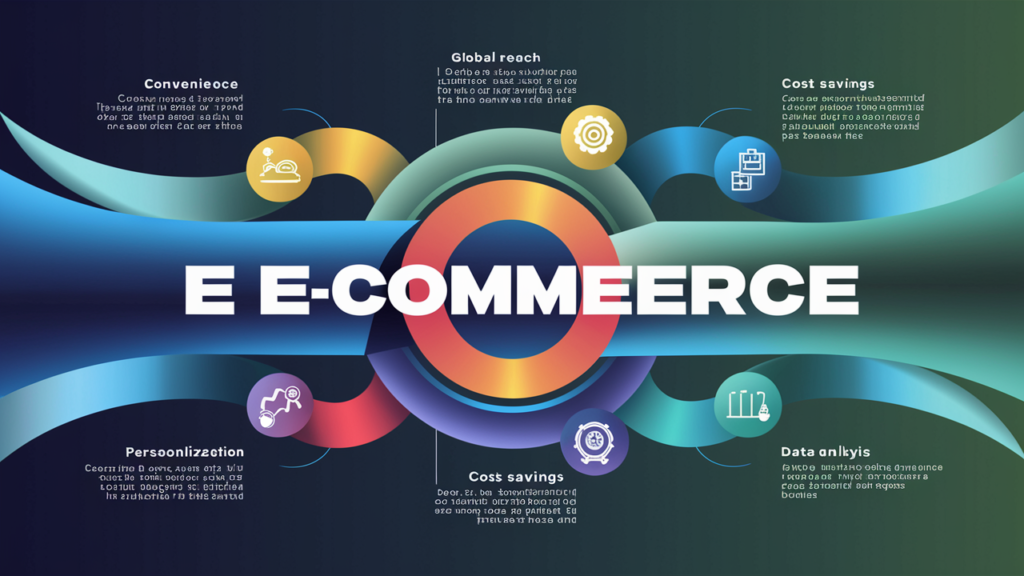Ecommerce offers an alternative to traditional storefronts, but there are advantages and disadvantages to a business using e-commerce. You might be tempted to create a website and start selling your products online, but it’s important to understand what you’re getting yourself into. E-commerce is a great choice for many business owners, but it may not be the best route for your particular business.
One thing you have to consider is how many resources it takes to build an e-commerce website, especially if you have to hire a professional. On top of that, you have to add a picture, title, and product description for each of your products. Plus, you have to keep an eye on your website to make sure there are no bugs or glitches that could put customers’ data at risk or cause hiccups in payment processing.
So, what are the advantages and disadvantages of a business using e-commerce? In this article, we’ll talk about what e-commerce is, the pros and cons, and whether it’s right for your business.
What is e-commerce?
There are several advantages of e-commerce for business owners who don’t want to set up a physical storefront. Thanks to e-commerce, you can build an affordable website and sell your products online. You can also drive traffic to your e-commerce store to reach a larger audience. Here’s a full breakdown of some of the biggest e-commerce benefits.
Advantages of Ecommerce Website
1. Reduced overhead costs
Running an e-commerce store is a lot more cost-effective than running a physical store. You don’t have to rent commercial real estate — instead, you can pay an affordable fee for web hosting. You don’t have to invest in security for your commercial property, plus you don’t have to worry about paying rent for a warehouse or hiring employees. With an e-commerce store, typical costs include your domain name, your web hosting, and the cost of building your website, as well as your inventory. That being said, most e-commerce websites spend some money on marketing as well.
2. No need for a physical storefront
There are so many difficult aspects to running a physical storefront and using e-commerce means you don’t have to face most of those obstacles. Renting a commercial property can be expensive, especially if you’re in a big city. You also have to pay for electricity, water, and internet to ensure your space is up to code and can handle your business. There’s also security to consider; if you want your physical storefront to be secure, you’ll need to invest in cameras and other surveillance equipment. With an e-commerce store, you can simply build your website and start selling your products online without worrying about setting up a physical storefront and spending as much money.
3. Ability to reach a broader audience
Perhaps the biggest advantage of e-commerce is the fact that it allows you to reach a massive audience. Your physical storefront can only get so many visitors in a day, especially if you live in a smaller town or a rural area. With an e-commerce store, you can reach potential customers all throughout the world and show them your products. Even if you’re not selling your products overseas, you can still reach shoppers all the way across the United States to boost your sales. This expanded reach has even allowed a handful of smaller e-commerce stores to become massive brands over time.
4. Scalability
Of the advantages and disadvantages of a business using e-commerce, scalability is one of the most practical advantages for long-term growth. If you have a physical storefront, your business can only grow so much before you have to move to a larger storefront. You also have to move inventory and equipment from one location to another, which makes it even harder to scale your store with the growth of your business. With e-commerce, your website and store can grow as your business does, and you don’t have to spend a fortune moving to a new physical space.
5. Track logistics
Keeping track of logistics is an essential part of e-commerce and retail marketing, and it’s significantly easier with e-commerce than it is with a physical storefront. You can outsource fulfilment logistics so your customers can enjoy benefits like 2-day shipping and easy returns processing. You also have an electronic record of everything, which makes it easy to track sales and look for trends that help you grow your business over time.
There are advantages and disadvantages of a business using e-commerce, so it’s important to know about the potential drawbacks as well. Running an e-commerce website can be particularly challenging for people who aren’t familiar with computers and technology. Here’s what you need to know about the potential downsides of e-commerce.

